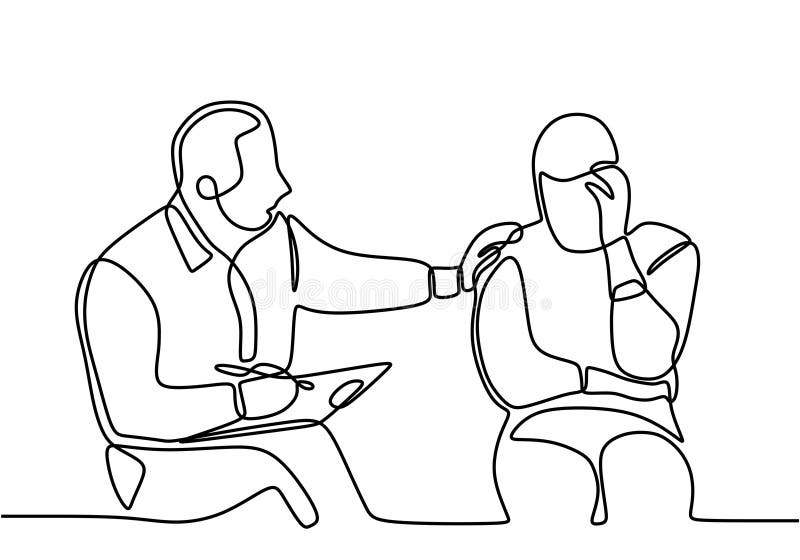Discovering the Best Psychologist in Delhi: An Overview to Your Psychological Health Trip
Discovering the Best Psychologist in Delhi: An Overview to Your Psychological Health Trip
Blog Article
Psych Therapy: A Comprehensive Guide to Strategies and Results

Cognitive-Behavioral Therapy
Cognitive-Behavioral Therapy (CBT) is a widely made use of psychotherapeutic technique that concentrates on recognizing and changing useless reasoning and habits patterns. Developed in the 1960s by Aaron T. Beck, CBT incorporates behavior and cognitive theories to deal with different psychological health and wellness concerns, including depression, stress and anxiety, and stress-related conditions. The facility of CBT is that maladaptive thoughts add to psychological distress and maladaptive actions. By restructuring these ideas, people can accomplish significant renovations in their psychological wellness and day-to-day performance.
Strategies such as cognitive restructuring, direct exposure treatment, and skill-building exercises are generally used. Cognitive restructuring entails tough and changing negative thought patterns, while direct exposure therapy intends to minimize anxiety and stress and anxiety through progressive exposure to been afraid circumstances or things.
Evidence-based study sustains the effectiveness of CBT for a vast array of mental disorders - Best Psychologist in Delhi. Its focus on ability procurement and self-help methods empowers clients to proceed progression individually after treatment ends. The versatility and performance of CBT have made it a foundation in contemporary psychotherapeutic method
Psychodynamic Methods
Rooted in the very early theories of Sigmund Freud, psychodynamic approaches concentrate on discovering the unconscious mind and its impact on behavior and emotions. These methods aim to reveal covert ideas and feelings that may be driving maladaptive actions and mental distress. Central to this method is the principle of internal dispute, typically originating from unsolved past experiences, specifically those from youth.
Therapists utilizing psychodynamic strategies use several vital approaches, including cost-free organization, where people are motivated to talk openly to disclose unconscious material, and dream evaluation, which analyzes the concealed material of desires. Furthermore, the expedition of transfer and countertransference dynamics within the therapeutic relationship is critical. These communications can provide understandings right into the person's internal world and relational patterns.
Psychodynamic treatment is typically longer-term contrasted to various other techniques, providing a deep and thorough understanding of the person's subconscious. Research shows that it can be especially effective for intricate mental health and wellness problems, such as character disorders and persistent clinical depression. By cultivating self-awareness and emotional insight, psychodynamic treatment seeks to bring subconscious product to consciousness, allowing people to attain purposeful and enduring modification in their lives.
Humanistic Strategies
Structure on the foundations laid by psychodynamic techniques, humanistic methods use an unique viewpoint concentrated on specific prospective and self-actualization. Coming from the mid-20th century, these techniques focus on the inherent goodness and growth possibility of individuals, highlighting an alternative view of human experience. Secret figures such as Carl Rogers and Abraham Maslow have actually dramatically affected this therapeutic method, which incorporates methods like client-centered therapy and Gestalt therapy.
Client-centered therapy, established by Rogers, plays a pivotal role in humanistic methods. It depends on the specialist supplying an atmosphere of genuine favorable respect, compassion, and congruence. This promotes a secure area for clients to explore their feelings and experiences without judgment, helping with self-discovery and personal development. The therapist's function is more of a facilitator than an authority, motivating customers to harness their internal resources for recovery.
Gestalt treatment, an additional essential humanistic strategy, stresses existing minute understanding and the combination of body and mind. By focusing on the "below and now," customers get greater insight right into their present feelings and behaviors. Methods such as role-playing and guided visualization are often employed to aid customers acquire a deeper understanding of themselves, inevitably bring about enhanced self-awareness and satisfaction.
Integrative Treatments
Integrative therapies stand for a synthesis of different restorative methods tailored to fulfill the special demands of each client. This strategy recognizes the complexity of human psychology and the complex nature of psychological wellness problems. By incorporating elements from different institutions of psychotherapy-- such as cognitive-behavioral treatment (CBT), psychodynamic treatment, and humanistic strategies-- integrative therapies supply an even more flexible and holistic treatment standard.
Specialists of integrative treatment examine each customer's certain requirements, symptoms, and individual history to create a personalized therapy plan. This personalized approach enhances the possibility for restorative success by resolving the origin of emotional distress and promoting total health. Strategies could consist of mindfulness visit their website workouts, cognitive restructuring, and psychological processing, each picked to target different facets of the customer's issues.
Furthermore, integrative treatments highlight the therapeutic connection, viewing the client-therapist bond as a vital part of reliable therapy. This connection promotes a supportive atmosphere where clients really feel secure to discover and address their issues. The flexibility of integrative treatments makes them suitable for a broad series of conditions, consisting of stress and anxiety, anxiety, trauma, and interpersonal difficulties, thereby raising their applicability and efficiency in varied professional setups.

Measuring Treatment Outcomes
Assessing the effectiveness of psychiatric therapy is critical for both customers and clinicians to make certain that the treatment is generating the wanted outcomes. To accomplish this, numerous techniques and devices are utilized to determine treatment end results systematically. Standardized analysis tools, such as the Beck Clinical Depression Stock (BDI) and the Generalized Anxiety Condition 7 (GAD-7), offer quantitative data on sign seriousness and changes over time.
Along with standardized devices, qualitative approaches like customer self-reports and professional meetings provide valuable understandings right into the individual experiences and regarded development of clients. On a regular basis set up assessments, commonly at the start, middle, and end of therapy, help in tracking the trajectory of renovation or recognizing locations needing adjustment.
Result measurement is not restricted to symptom reduction; it likewise includes functional improvements in life, such as better social partnerships, raised work efficiency, and enhanced overall health. Modern advancements in electronic health and wellness have actually presented mobile applications and on-line systems that promote real-time monitoring and responses, better fine-tuning the evaluation procedure.
Inevitably, a detailed technique to measuring treatment end results makes certain that therapeutic treatments are efficient, efficient, and tailored to meet the individual requirements of clients, thus optimizing the total healing experience.
Conclusion
Humanistic strategies concentrate on individual development and self-actualization, while integrative treatments incorporate multiple approaches for additional reading tailored therapy strategies. Reviewing treatment end results through qualitative techniques and standard assessments makes sure a thorough understanding of effectiveness, inevitably guiding clients toward sustaining mental wellness enhancements.
From the organized technique of Cognitive-Behavioral Therapy (CBT) to the deep expedition of Get the facts the subconscious in psychodynamic treatment, each approach brings special benefits. Its emphasis on ability acquisition and self-help methods equips customers to proceed progress separately after treatment ends (Best Psychologist in Delhi). Trick figures such as Carl Rogers and Abraham Maslow have dramatically affected this therapeutic strategy, which includes methods like client-centered therapy and Gestalt treatment

Report this page